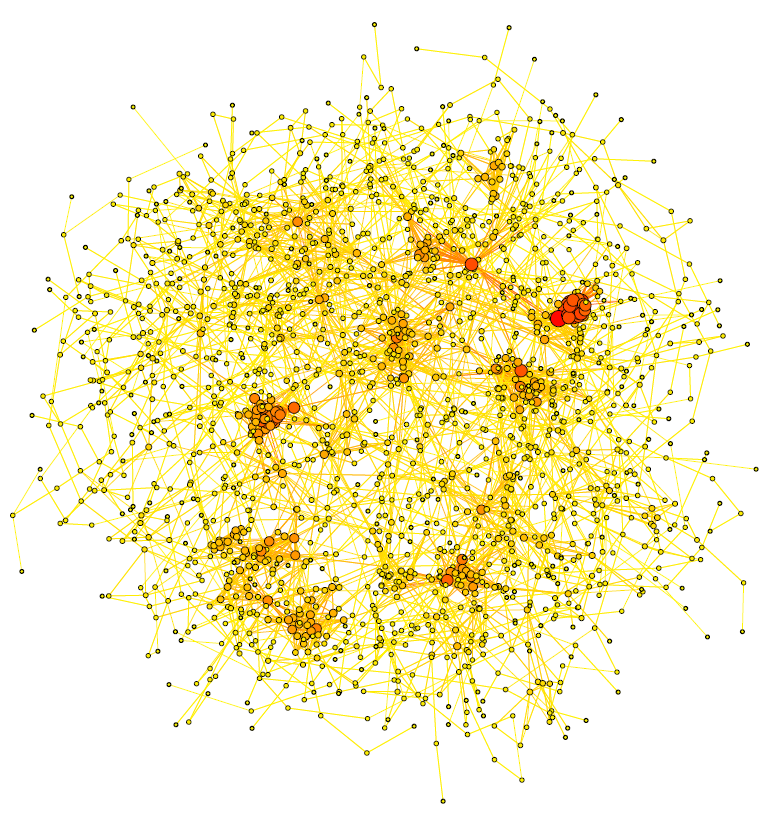About

The Leiden Computational Network Science (CNS) group works on methods and algorithms for analyzing large-scale real-world (social) network data. We develop techniques to unveil patterns in dynamic complex networks from a range of application domains, including online soclal networks, population-scale networks, scientific collaboration networks, communication networks, infrastuctural networks and economic/financial networks.
Network science can be seen as a specialization of data science that focuses on network data, or alternatively, as a particular method in complexity research. Typically the network perspective reveals patterns and emerging phenomena that are not visible when the mere individual objects in the data are studied. The field is also referred to as social network analysis or complex networks.
About the group. The CNS group is lead by Frank Takes and is part of the Department of Computer Science and AI (LIACS) at Leiden University, as a member of the Data Science cluster. The group is associated locally with the Leiden Complex Networks Network (LCN2) and nationally with the Dutch Chapter of the Network Science (NL NetSci) Society.
Projects and collaborations. The CNS group hosts a number of research projects by its PIs, and features several multidisciplinary collaborations, involving other scientific disciplines such as economics, law, archaeology and the social sciences. Important (past) collaborations include the CORPNET group and computational social science (CSS) platform of the University of Amsterdam, as well as the inter-university POPNET project, which was, in particular as a result of NWO funding in the SSHOC-NL project, later absorbed into the inter-university PLANET-NL initiative. Various partners in industry and the public sector, such as Statistics Netherlands (CBS) are also frequently involved in joint research with the group.
Teaching. The members of the group are also responsible for the 2014 established MSc course Social Network Analysis for Computer Scientists and contribute since 2022 to the BSc/MSc Complex Networks course together with mathematics and physics. In addition, several members of the group are founding members and teachers of the faculty-wide minor programme, established in 2025, on Network Science for a Connected World.